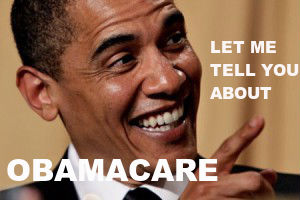by | ARTICLES, BLOG, BUSINESS, ECONOMY, GOVERNMENT, OBAMA, POLITICS, TAXES

While stumping for Democrat candidates in Oregon, the Vice President shared his thoughts on the current economy with voters. And he got it very wrong.
“Economic growth has replaced the income that was lost during the recession, but the gains went primarily to taxpayers on the top. I think we should make them start to pay their fair share. Take the burden off the middle class”
Economic growth has not happened. Since Obama began his presidency:
The national debt has skyrocketed from $10.6 trillion to $17.8 trillion
Homeownership has decreased from 67.5% to less than 65%
Labor participation has fallen from about 66% to 63%.
Food stamp use has increased from 32 million to 46 million participants
Lost income has not been replaced: Since Obama began his presidency:
Median incomes have decreased from about $54,000 to $51,500.
The number of Americans who consider themselves middle class has dropped nearly 20%
Gains did not primarily go to taxpayers on top:
“The top 20 percent of earners accounted for 51 percent of all income in 2013, unchanged from 2012 and up slightly from 49.4 percent in 1999″.
Of course, Biden used his (wrong) economic talking points to pull out the old class-warfare playbook and insist that the rich “pay their fair share”.
Finally, if Biden is concerned about taking the burden off the middle class, he needs to start with the government. As I said earlier this week, the middle class has been the most devastated by Obama’s policies. Job growth and small business sustainability have been decimated by government regulation, taxation, fines, and lawsuits meddling in normal business practices. The middle class can’t get good jobs anymore, businesses have failed, growth is tepid, and everyday Americans are rightfully discouraged.
by | ARTICLES, BUSINESS, ECONOMY, GOVERNMENT, OBAMA, POLITICS, TAXES

Suddenly, Obama is everywhere talking about economic policies again. He is the mastermind behind the growth in corporate profits. He is the reason for the current stock market highs. He has single-handedly reduced unemployment to its lowest rate since 2008. He is Obama!
And yet, the middle class is repeatedly telling Obama that they feel left behind.
Why such disparity? The Administration can try to attribute these recent “successes” to Obama, but it only shows that they have a laughable cluelessness about what is really happening as a result of his economic policies.
Major corporations are doing well because they have enough size and stability to weather the storm created by Obama’s terrible business policies. This has included minimizing employment and trying to be as lean and efficient as possible. Mom-and-pops, on the other hand, have not the luxury to be as resilient.
The stock market is high only because major corporations have continued to persevere by changing the way they do business. Because of the government policies — including over-regulation and excessive taxation — companies have been forced to operate on the skinny just to survive. By doing so, profits are able to be maintained and the stock market reactive to that.
As a result of efficiency, therefore, unemployment is at its lowest percentage because there are no jobs to be attained anymore and people are just simply leaving the workforce altogether. Obama refuses to acknowledge the fact that labor participation is at its lowest rate since 1962. That is the major contributing factor to his “low” unemployment number — not because of job creation as he claims. Americans have stopped looking for work.
Thus, the middle class has the correct assessment because they have been the most devastated by Obama’s policies. Job growth and small business sustainability have been decimated by government regulation, taxation, fines, and lawsuits meddling in normal business practices. The middle class can’t get good jobs anymore, businesses have failed, growth is tepid, and everyday Americans are rightfully discouraged.
Related: “AP’s ‘Fact Check’ of Obama’s ‘Stronger Economy’ Claims Limited to ‘A Few’ Items: Two”
Lou Dobbs Refutes Obama’s Claim that the Economy Has Improved by Every Economic Measure
Are You Better Off Today? Here are the True Facts & Figures From the Obama Economy
by | ARTICLES, ECONOMY, FREEDOM, GOVERNMENT, NEW YORK, OBAMA, POLITICS, TAXES

I have written on this subject before, and now the effects of high taxes and population migration are playing out in a substantial, political way: the decline of about 40% of Congressional seats in the northeast.
According to the Census Bureau, high taxpayers are moving south. It notes that in the 11 states that comprise the Northeast, population grew at a rate of only 15% over the thirty year span from 1983-2013, while the rest of the nation grew at roughly 41%. The key factor is high taxes. The result is a loss of Congressional seats there.
The American Legislative Exchange Council recently did a comprehensive study on House representation in 1950 from Maine to Pennsylvania, and compared it to current House seats. In 1950, there were 141 House members, but today there are only 85. Remember House seats are based on population — so this change is a 40% loss of power.
Need a dramatic comparison? Texas and California combined together now have more House seats than the Northeast conglomerate. For an area that used to be a political powerhouse, it is becoming increasingly marginalized due to excessive taxes and the ensuing population shift.
In 2011, Reuters had a lengthy article detailing how northern residents were fleeing massive state and local tax hikes. I wrote about the impact of high taxes on New York population loss here in 2012. And the NYTimes reported in December 2013 that Florida was soon to pass New York in population.
High taxes are a major factor in this population and political change, and it will be interesting to watch in the next few election cycles. As the report notes above, “This result is one of the most dramatic demographic shifts in American history. This migration is shifting the power center of America right before our very eyes. The movement isn’t random or even about weather or resources. Economic freedom is the magnet and states ignore this force at their own peril.”
by | ARTICLES, BUSINESS, ECONOMY, FREEDOM, GOVERNMENT, OBAMA, POLITICS, TAXES

Discussion began heating up again about the “internet tax” last week when lawmakers pushed back the moratorium on Internet access taxes — set to expire on Nov. 1 — until mid-December during the lame-duck session. In the meantime, let’s call it out for what it really is: a revenue grabber masquerading as “fairness”.
Last year the Senate passed the online sales tax bill, formally known as the “Marketplace Fairness Act”. There is nothing fair about this act. It is a back-door way for states to add additional levies on their citizens under the guise of leveling the playing field . From an accountant’s perspective, here’s how:
Most proponents of the bill suggest that there is somehow a dearth of tax revenue from which states are suffering terribly. This sentiment was echoed at the time in the pages of the WSJ by Arthur Laffer. He wrote that “the exemption of Internet and out-of-state retailers from collecting state sales taxes reduced state revenues by $23.3 billion in 2012 alone, according to an estimate by the National Conference of State Legislatures. The absence of these revenues has not served to put a lid on state-government spending. Instead, it has led to higher marginal rates in the 43 states that levy income taxes”.
But this is simply and patently untrue. State legislatures have always set their tax rates with the full understanding that they would not actually collect that supposed $23.3 billion of internet “slippage”. It’s not like there is a line item in state budgets that lists “uncollected online tax” or “tax cheats” with a number attached. Sales tax is one of many levies whose revenues positively fund government spending. This online tax, if passed by the House next and signed into law, will just be yet another tax (and therefore revenue) for the coffers. Higher marginal rates exists because state-government spending levels are higher, not because of some “absence of tax” nonsense that forces states to raise rates.
In our states’ budgets, current taxes rates (income + sales, if applicable) are set at levels appropriate to cover the calculations of state spending. 49 out of 50 states require a balanced budget. These states are fully aware that taxes are “avoided” (internet and out-of-state) and therefore don’t even count them in their budget calculations. So there is no concrete “absence of revenue”. Instead, by passing this new internet tax, you are merely giving the states a free reign to add a tax without taking the political heat for it, under the guise of “fairness”.
Looked at it another way, it is unconscionable for Congress to pass this legislation without requiring that states lower their marginal rates so that the new tax makes everything revenue neutral. Higher marginal rates as they are already burden taxpayers. This internet tax doesn’t fix anything — because there is nothing in their budgets to be “fixed”. True tax reform (a true “fix”) always means broadening the base and thereby reducing the overall burden of taxes. Instead of that, what we have with this bill is a revenue grab.
Another fallacy for supporters is that including the internet tax in transactions is simply a matter of adding a quick, little tax line where there was none before. But it is highly irrational for legislators to believe that compliance with multiple tax jurisdictions for vendors will be an easy and unburdensome process. The recordkeeping will be excruciating.
This tax nightmare is similar to the 1099 fiasco originally included in Obamacare a couple of years ago, which expanded the reporting requirements to include all payments from businesses aggregating $600 or more in a calendar year to a single payee. Because of the insurmountable amount of reporting and paperwork that would have been associated with it, that provision was highly protested and swiftly and subsequently repealed.
The effect of distressing our businesses to comply with this online tax collection will be a drag on the economy. Can you imagine vendors needing to figure such things as whether marshmallows are a taxable food/candy in some jurisdictions while it might be a non-taxable food in others? To think that software can seamlessly make this distinction is ludicrous, especially software run by the government. When has the government ever actually streamlined anything? And implementing such a convoluted tax while businesses are already having to deal with sorting out the egregious complexities of Obamacare compliance will certainly hurt businesses even more.
Internet tax collection for 9,600 local tax jurisdictions or even just 50 states is too much. If such a tax is to be passed, it should be either a tax in which every state accepts one set of rules OR a tax payable to the state-of-sale only — which would ultimately be better for tax competition overall.
The economy is suffering enough. Adding yet another tax for citizens, which also requires burdensome compliance for businesses, is not the way to do it.
Laffer was correct regarding taxes when he observed that “the principle of levying the lowest possible tax rate on the broadest possible tax base is the way to improve the incentives to work, save and produce which are necessary to reinvigorate the American economy and cope with the nation’s fiscal problems”. But the “internet tax” doesn’t do that. In its current form, it is just another revenue stream for our bloated, overspending government.
This is no “Marketplace Fairness Act”. It is an atrocity.
by | ARTICLES, BUSINESS, ECONOMY, FREEDOM, GOVERNMENT, OBAMA, POLITICS, TAXES

The Department of the Treasury announced last night that it has implemented new rules aimed at making it more difficult for U.S. companies to move their headquarters abroad, which is known as an “inversion”. The rules take immediate effect.
Interestingly enough, when Obama began his crusade against inversions earlier this summer, Secretary of the Treasury Jack Lew was adamant enough that rules changes must originate in Congress, he wrote a letter to Congress and he penned an Op-Ed about it in for the Washington Post, both in July. From the Op-Ed:
I call on Congress to close this loophole and pass anti-inversion legislation as soon as possible. Our tax system should not reward U.S. companies for giving up their U.S. citizenship, and unless we tackle this problem, these transactions will continue. Closing the inversion loophole is no substitute for comprehensive business tax reform, but it is a necessary step down the path toward a fair and more efficient tax system, and a step that needs to be in a place for tax reform to work.
Now suddenly it seems Jack Lew has inverted own his position and announced new rules originating from the Treasury Department, not Congress — and did so as soon as Congress left town for a break. Obama referred to that loophole in his statement to the press:
“We’ve recently seen a few large corporations announce plans to exploit this loophole, undercutting businesses that act responsibly and leaving the middle class to pay the bill. I’m glad that Secretary Lew is exploring additional actions to help reverse this trend.”
Except there is no loophole. Business inversions are merely a movement from the U.S. to a foreign HQ. The reasons for doing so is not to avoid paying taxes as the Obama administration would have you believe. And there is no “lost tax bill” either that the middle class is “left to pay”. U.S. companies face a kind of double taxation — taxing both domestic and foreign earned corporate income — and we are the only major industrial nation to this to our businesses.
At a time when many industries are truly global, in the present environment U.S. companies are at a severe financial disadvantage compared to foreign companies. This foreign-earned income is what the United States government currently lays claim to — and is the only country in the world to do so. So under this tax law, U.S. companies therefore pay higher tax rates than other foreign companies do on the income they make in foreign countries, putting U.S. companies at a competitive disadvantage.
Jack Lew was right, in a tragic sense, when he stated that “this action will significantly diminish the ability of inverted companies to escape U.S. taxation”. That “U.S. taxation” from which some companies are trying to “escape” is that wretched double taxation on both its domestic and foreign earned income. All an inversion does is allow a U.S. company to change its HQ from the U.S. to a foreign country, for the sole purpose to have the ability to be on par with foreign companies and eliminate the severe tax disadvantage that the U.S. puts on its own businesses in a global setting. Enacting these rules will indeed “significantly diminish” some companies from inverting — and likely diminish their ability to stay competitive around the world in doing so.
Besides the double taxation rules, the United States has the highest corporate tax rate in the world at 35%. At a time when other countries have lowered their corporate tax rates, the U.S. has stayed stubbornly high, thereby earning them the 32 spot out of 34 countries in the new “International Tax Competitiveness Index”. This index measured two criteria, competitiveness and neutrality, by examining the extent to which a country’s tax system adheres to these two important principles of tax policy. Responding to that ranking, the Wall Street Journal wryly noted that if punitive legislation on inversions were to be enacted, ”the U.S. could fall to dead last on next year’s ranking. Now there’s a second-term legacy project for the President.” And now we have such measures suddenly implemented.
Sadly, the crusade against inversions is really less about money than it is about scoring rhetoric points by throwing around words like “loopholes” and “unpatriotic” when discussing businesses. Bloomberg noted that “the congressional Joint Committee on Taxation has estimated that legislation to curb inversions would raise about $20 billion over the next decade”. That is $2 billion a year, a drop in the bucket for tax income.
Making it harder to invert now — which is what some corporations might need to do in order to stay in business — is repugnant. The business climate in this country is difficult and to insinuate that a company is a “deserter” casts the blame squarely in the wrong place — which is a government that over-taxes and over-regulates. Those are the real problems, and the recent uptick in inversions are merely a symptom of the strident anti-business environment that pervades this administration.
by | ARTICLES, BUSINESS, ECONOMY, GOVERNMENT, OBAMA, POLITICS, TAXES

The government is still running more than a half-trillion dollar deficit right now, with one month left to go in the fiscal year, despite record revenue being hauled in.
CNSNews reports that “Inflation-adjusted federal tax revenues hit a record $2,663,426,000,000 for the first 11 months of the fiscal year this August, but the federal government still ran a $589,185,000,000 deficit during that time, according to the latest Monthly Treasury Statement.”
Thus, the government is still over-spending, to the tune of $3,252,611,000,000 in total expenses so far this year.
Here’s the breakdown of revenue:
Individual income taxes: $1,233,274,000,000
Corporate income taxes: $247,200,000,000
Employment and general retirement (off-budget): $674,338,000,000
Employment and general retirement (on-budget): $209,281,000,000
Unemployment insurance: $54,591,000,000
Other retirement receipts: $3,155,000,000
Excise taxes: $73,051,000,000
Estate and gift taxes: $17,702,000,000
Customs duties: $30,902,000,000
Miscellaneous receipts: $119,933,000,000
So just remember, the problem isn’t enough tax revenue or underfunded programs — it’s that the government can’t seems to stay on budget or within its revenue receipts. All this overspending does is just continue to add to the growing deficit.
by | ARTICLES, BLOG, ECONOMY, OBAMA, POLITICS, TAXES

At least you can say Bernie Sanders is ideologically consistent. The self-proclaimed socialist unabashedly declared on Saturday that “we need a tax system which asks the billionaire class to pay its fair share of taxes and which reduces the obscene degree of wealth inequality in America.” It was particularly fitting that the speech was at an AFL-CIO convention.
Over on his Senate page, Sander’s posted his proposal — “a progressive estate tax on the wealthiest Americans”:
“For those who would pay more, the tax rate on estates valued from $3.5 million to $10 million would be 40 percent. There would be a 50 percent tax on estates worth $10 million to $50 million and a 55 percent levy on estates worth more than $50 million. A 10 percent surtax would be applied on estates worth more than $1 billion, a category that today includes fewer than 500 American families. The bill also would close estate tax loopholes that have allowed the wealthy to avoid an estimated $100 billion since 2000.
His rationale? Sanders said that this is “the fairest way to reduce wealth inequality, lower the $17 trillion national debt and pay for investments in infrastructure, education and other neglected national priorities.”
Notice he said fairest — not most efficacious — way to reduce wealth inequality. Because the actual amount raised on such a tax will be negligible for any real deficit reduction, hopefully such a foolish proposal will never be implemented.
Unfortunately, with any sort of supertax, the truest and most invisible effects will be felt in the economy. The confiscatory nature of a high estate tax is among the worst offenders. “The economic incidence of the death tax is far broader, because it causes many wealthy individuals to save less, choosing instead to retire early or, as Milton Friedman put it, “dissipate their wealth on high living.” This reduction in savings means a concomitant reduction in investment, lessening the flow of capital to businesses and organizations where countless ordinary Americans are employed.”
And yet, Sanders sees nothing “obscene” about the another kind of wealth inequality: the salary and benefits of Congress, which, at $286K, is about 95% greater than what average Americans earn. Or still yet, another kind of wealth inequality: the $17 trillion government debt and spending problem that he is purporting to fix by his punitive tax proposal.
by | BLOG, ECONOMY, GOVERNMENT, OBAMA, POLITICS, TAXES

In a moment of recent hand-wringing, the Fed examined the question of why inflation has stayed extremely low in the United States despite all the efforts of quantitative easing money pumping. Their answer: American consumers are mainly to blame.
Yes indeed. In a paper released this week by the St. Louis Federal Reserve, the Fed cites “low level of money movement in large part on consumers and their “willingness to hoard money.”. To be fair, the paper also criticized its own policies as well, suggesting that the has they have “reinforced the recession” with their “excessively low interest rate policy”.
However, “hoarding money” is seen as the main culprit and attributable to two factors:
A (gloomy) economy after the financial crisis.
The dramatic decrease in interest rates that has forced investors to readjust their portfolios toward liquid money and away from interest-bearing assets such as government bonds
The use of the word hoarding is key to understanding the contempt here. They didn’t say “willingness to save money”, they said “willingness to hoard money”. Saving would imply prudence while hoarding implies selfishness, carefully guarded. It’s like a petulant temper tantrum: why won’t you spend your money for the good of the economy?!
Equally stunning is the lack of discussion with regard to investors. They point out that investors aren’t investing in interest-bearing assets “such as government bonds” but completely omit the reality that investors aren’t investing in businesses either. This is a result of the anti-business climate which is displayed by the current administration.
People used to spend their money investing in or even starting small businesses. That was the backbone of America. It’s not so much anymore. This administration has been exceedingly heavy-handed in its efforts to demonize businesses, while promising that businesses will be highly taxed and regulated. Additionally there have been huge increases in both criminal rules and regulations about what businesses are allowed and not allowed to do, along with a litigation-friendly environment.
All anyone ever reads in the paper is that the government is spending their time and money going after businesses and penalizing them, so much that we are truly becoming dissuaded from going into business.
A few months ago, I wrote about the liberty of risk after the WSJ posted an article by Ben Casselman, who noted the very real decline of risk-taking in business ventures. It is this downward trend which is a major contributor to the fact that the recovery from the recent recession is so painfully slow and anemic. The people’s appetite for investing has been totally decimated by the war on businesses being waged.
And don’t forget, we apparently have lost our appetite for spending too, because we “hoard money” these days (whatever is leftover in a paycheck to actually be able to hoard, that is) in this “gloomy economy”.
by | ARTICLES, ECONOMY, FREEDOM, GOVERNMENT, HYPOCRISY, OBAMA, POLITICS, TAXES

Just like the recent rise of business inversions — moving business HQ abroad — the United States has seen an uptick (up 221%) in Americans renouncing their citizenship. The elephant in the room in both these cases is taxes: both high taxes and burdensome tax compliance in foreign jurisdictions.
Instead of facing the problems directly, the Obama Administration has resorted to punitive measures. The shame and blame tactic of calling out businesses who wish to relocate as “unpatriotic” was undignified. Perhaps realizing that using the same strategy with individuals would be even less well received, they went the more quiet, direct route: yesterday, the State Department announced their interim final rule that raises the fee for renouncing citizenship from $450 to $2,350.
Their justification for raising the fee is the time and labor involved in the process; that is, the bureaucratic red tape that they created, and then decide to charge exhorbitant fees for:
“The CoSM demonstrated that documenting a U.S. citizen’s renunciation of citizenship is extremely costly, requiring American consular officers overseas to spend substantial amounts of time to accept, process, and adjudicate cases. For example, consular officers must confirm that the potential renunciant fully understands the consequences of renunciation, including losing the right to reside in the United States without documentation as an alien. Other steps include verifying that the renunciant is a U.S. citizen, conducting a minimum of two intensive interviews with the potential renunciant, and reviewing at least three consular systems before administering the oath of renunciation. The final approval of the loss of nationality must be done by law within the Directorate of Overseas Citizens Services in Washington, DC, after which the case is returned to the consular officer overseas for final delivery of the Certificate of Loss of Nationality to the renunciant. These steps further add to the time and labor that must be involved in the process. Accordingly, the Department is increasing the fee for processing such requests from $450 to $2,350. As noted in the interim final rule dated June 28, 2010 (77 FR 36522), the fee of $450 was set substantially below the cost to the U.S. government of providing this service (less than one quarter of the cost). Since that time, demand for the service has increased dramatically, consuming far more consular officer time and resources, as reflected in the 2012 Overseas Time Survey and increased workload data. Because the Department believes there is no public benefit or other reason for setting this fee below cost, the Department is increasing this fee to reflect the full cost of providing the service. Therefore the increased fee reflects both the increased cost of the provision of service as well as the determination to now charge the full cost.
Interestingly enough, if you compare the cost of renunciation in the United States to the cost of renunciation in other countries, the new fee puts the United States way above others. You can check out this handy chart here. The next two highest are Jamaica ($1,010 in US dollars), and Sierre Leone ($663 in US dollars).
So those who wish to renounce their citizenship get to buy their freedom by paying a 422% fee increase for the express privilege of dealing with United States bureaucracy one final time.
This is considered an administrative fee, issued by the State Department, but it is essentially an unofficial “exit tax” for regular citizens. But there is a real one too. As Forbes notes, “To leave America, you generally must prove 5 years of U.S. tax compliance. If you have a net worth greater than $2 million or average annual net income tax for the 5 previous years of $157,000 or more for 2014 (that’s tax, not income), you pay an exit tax”.
So for those who have done well in the United States, besides the higher administrative fee/exit tax, you get to pay that real “exit tax” knows as the 877A.
Alas, this isn’t the first time those wishing to leave have been targeted. A bigger, punitive measure was attempted in 2012 by Senators Chuck Schumer and Bob Casey. When the co-founder of Facebook, Eduardo Saverin, renounced his U.S. citizenship as a means to save millions in taxes before Facebook went public, the Senators reacted by proposing the “Ex-PATRIOT Act” of 2012 that essentially doubled the exit tax for high worth individuals. “People who could not prove another reason for renouncing citizenship would face a 30% tax on future capital gains on U.S. investments – twice the current 15% rate – and be barred from receiving a visa to enter the country.” Thankfully the bill died in committee the first year, and did not advance out of the Senate in 2013.
Though this new fee hike is different than the standard exit tax, and on a much smaller scale (dollars-wise), it speaks the same language: punish. All this fee hike does is prove that that current administration would rather squeeze U.S. citizens for more revenue, thus likely reiterating to those renouncing their citizenship that being a U.S. citizen lacks much of the value that it once did. And that is a very sad thing.
by | ARTICLES, BUSINESS, ECONOMY, GOVERNMENT, OBAMA, OBAMACARE, POLITICS, TAXES

According to the Treasury Inspector General for Tax Admininstration (TIGTA), the 2.3% medical device excise tax enacted to help pay for Obamacare is not meeting targets.
The tax went into affect January 1, 2013. The TIGTA report analyzed the returns for the first two quarters (6 months) of 2013, and found that the “excise tax revenue being reported are lower than estimated” for a total of $913.4 million. The IRS expected to have received “excise tax revenue of $1.2 billion for this same period.”
The report also states that the “Joint Committee on Taxation estimated revenues from the medical device excise tax of $20 billion for Fiscal Years 2013 through 2019.”. And yet, in the first six months alone, the estimate amounts are off by 25%. That does not bode well.
Many of the problems originate in the IRS. In fact, the report is aptly named “An Improved Strategy Is Needed to Ensure Accurate Reporting and Payment of the Medical Device Excise Tax”. Some of the key findings:
“The IRS is attempting to develop a compliance strategy to ensure that businesses are compliant with medical device excise tax filing and payment requirements and has taken several measures to advise medical device manufacturers of the new excise tax. However, the IRS cannot identify the population of medical device manufacturers registered with the Food and Drug Administration that are required to file a Form 720 and pay the excise tax.”
“In addition, processing controls do not ensure the accuracy of medical device excise tax figures reported on paper-filed Forms 720. Our analysis of 5,107 Forms 720 processed for the quarters ending March 31 and June 30, 2013, identified discrepancies in the amount of the medical device excise tax and/or taxable sales amount captured from 276 paper‑filed tax returns. TIGTA identified medical device excise tax discrepancies totaling almost $117.8 million when comparing the excise tax amount captured by the IRS from the Form 720 to the excise tax amount TIGTA calculated.”
And the most interesting:
“Finally, the IRS erroneously assessed 219 failure to deposit penalties totaling $706,753 against businesses filing a Form 720 for the quarters ending March 31 and June 30, 2013, which was designated a penalty relief period. The IRS had reversed 133 of the 219 penalty assessments. When TIGTA alerted the IRS of the remaining 86 penalties, IRS management reversed the penalties and issued apology letters to the affected taxpayers.”
The IRS, it seems, was unprepared to handle the collection of excise tax, and furthermore, did not seems to understand basic reporting and penalty relief periods of which it was put in charge.
Think about this: we are now in August of 2014. That means that the second half of 2013 and the first half of 2014 went by before the TIGTA report was released with its findings. If the first 6 months of revenue were found to be about 25% under estimate, it is likely the trend continued for the next full year.
The IRS did agree to the findings of the TIGTA report. However, the summary does not leave one feeling confident that there will be swift resolution now that the problems have been discovered and dissected. Note the ambiguity and qualifiers:
The IRS agreed with our recommendations and plans to consider alternative strategies for identifying noncompliant manufacturers, identify programming changes needed to improve the math verification for paper-filed Forms 720, and implement procedures for corresponding with taxpayers if the changes can be accomplished within budgetary constraints.
Never mind the fact that the Affordable Care Act passed in March 2010 with the excise tax being a key, but controversial, revenue-raiser. The IRS had nearly three years to come up with a) a system to identify companies who owed the tax and b) a system to process the associated forms. And it couldn’t do it.
With the tax being so controversial from the get-go, there have been measures in Congress calling for its repeal because of its impact on the cost of devices and well as jobs in the medical device field.
“The medical device industry has been lobbying hard to get the tax repealed, and there has been movement in Congress. Both the House and the Senate have passed separate pieces of legislation calling for the tax to be repealed, though the Senate vote was on a nonbinding resolution.”
The problem at this point with excise tax repeal is the question of how to make up for even more lost revenue to pay for Obamacare. Taxpayers should be indeed be nervous that the tax collection is showing to be only 75% and we actually have no idea if it improved or worsened at all over the following year because data is not available for it.
The only thing we do know is that we are certain to see a premium rate increases this coming year because the projections have been so off-estimate.









